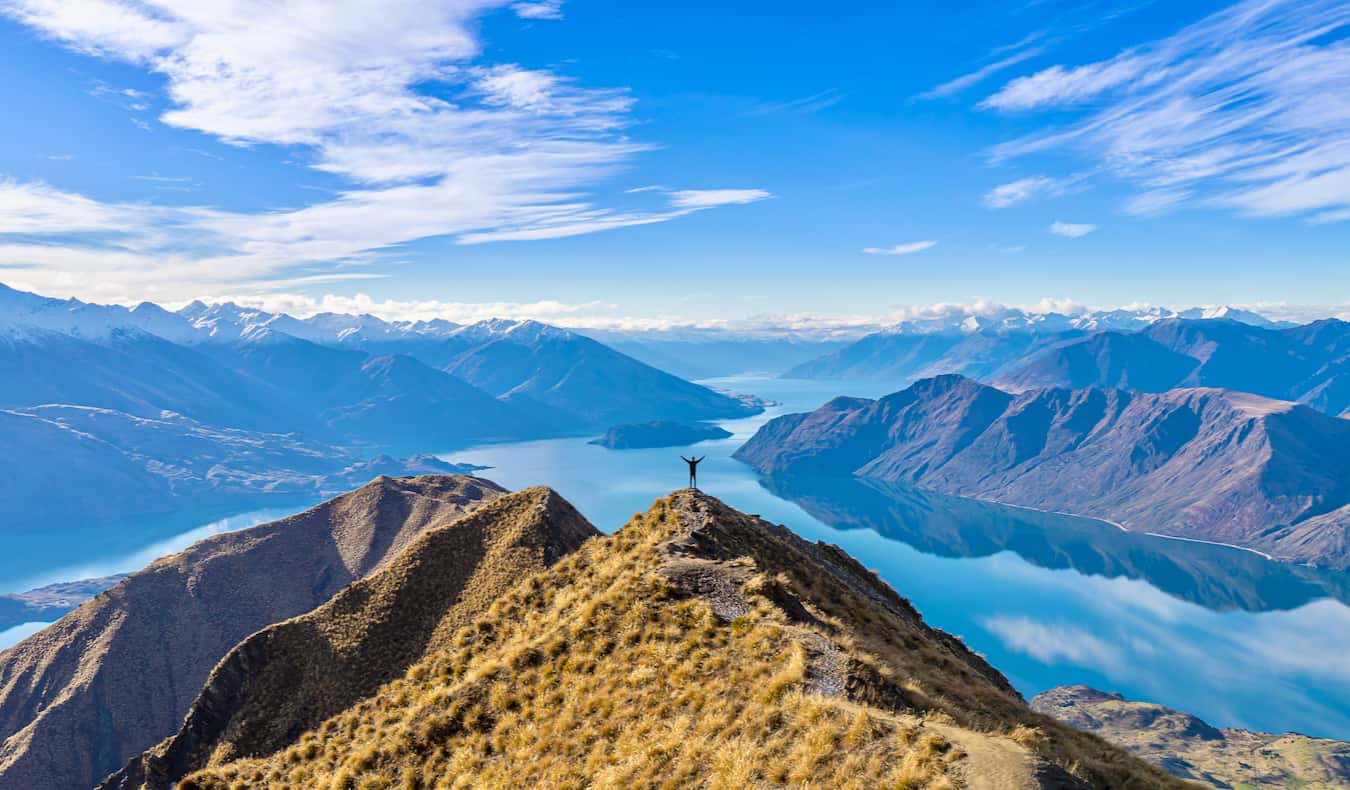
Posted: 12/15/23 | December 15th, 2023
Staying safe on the road is a top concern for….well, everyone. No one wants to get scammed, hurt, or sick on the road. No one wants to get robbed.
And, when you are going somewhere you have never been before, it’s normal be cautious. You don’t know what to expect or how to play it safe. There’s a lot of unknowns.
While every country in the world is different, there’s some standard practices and common rules you can use to stay safe when you travel. Some of these rules are common sense, some were sadly learned from first hand experience!
Here are my 10 safety tips to ensure everything goes smoothly when you travel:
1. Learn about common scams
While scams are rare, they are out there, waiting for unwitting travelers to stumble into them. Most will only cost you a few bucks and a bit of embarrassment, but others can fleece you. Be sure to read up on your destination to see if there are any common scams to be aware of.
On my first trip to Thailand I was scammed multiple times on my first day. It was just a few bucks, fortunately, but it was still awkward and unpleasant. Since that trip, I’ve always made sure to be vigilant and research scams before I travel.
Common travel scams include taxis not using their meter because it’s “broken,” people trying to rope you into signing a petition (and then demanding a donation), or people selling fake (or overpriced) tickets to attractions.
Review this list of common scams before you go so that you’re ready for whatever is thrown your way.
2. Buy travel insurance
One of the very first things I do once I book a trip is buy travel insurance. I know, it’s not a fun part of travel planning and it’s a boring thing to read (and write) about. But buying insurance early guarantees I’m covered in case I need to cancel my trip, if my flight is canceled or delayed, and much more.
For just over a dollar per day you get peace of mind, knowing that, should something go wrong, you won’t have to deal with it (or pay for it) alone.
I never leave home without travel insurance. You shouldn’t either.
If you’re on a budget, SafetyWing is my go-to company for affordable plans.
If you’re really concerned and want someone to call in an emergency, check out Medjet.
Medjet has a security response membership, MedjetHorizon, with 24/7 security teams ready to help (and extract you if necessary). It can also get you moved home if you’re hospitalized. Most travel insurance plans just move you to the nearest hospital, but Medjet will get you to your preferred facility in your home country, no questions asked.
If you want to learn more, you can read my complete review of Medjet here.
You can get a Medjet quote here (there are super affordable short-term and annual memberships).
For more information on travel insurance, here’s a list of all my recommended travel insurance companies.
3. Know what your insurance will and will not do
Before you leave home, read over your insurance policy again. Every company is different, so it’s good to know exactly what is and is not covered.
For example, many travelers think that if they break their leg abroad, their insurance company’s medical evacuation benefits will get them home. That’s not always the case. Chances are, they will only get you to the “nearest acceptable facility” and make sure that you’re treated there. You’ll then be on your own to get home.
For security threats and natural disasters, insurance companies generally require what’s called a “hard trigger” before they can or will assist you. That means the government must declare an emergency or evacuation order. If that doesn’t happen, you will be expected to get home yourself, even if the situation is dire (and even if it costs thousands of dollars).
That’s why I always suggest Medjet to travelers who want to be sure they get home no matter what. It’s the ultimate in security and crisis response. There’s a 24/7 crisis line that can respond to a wider range of safety threats without the need for a hard trigger.
4. Save your emergency contacts
Once you have travel insurance, save the contact number in your phone. Save the emergency contact email in your inbox too. That way, you can find it quickly if you have a question or need assistance.
If you think you might not have Wi-Fi or cell phone service during your trip, write the number down in your phone on a notes app just to be safe. You might also want to keep a physical copy of both in your wallet too, just in case something happens to your phone.
Be sure to also email yourself copies of all your important documents, such as your passport and license, in case you lose your wallet. Having printed copies of them isn’t a bad idea either.
5. Prepare a Google Map
Once you’ve booked your accommodation, save it on Google Maps. That way, you can find your accommodation should you get lost and need to show the address to a driver. You might want to also take a physical business card from your accommodation once you arrive (it will have the address and contact info on it, which might come in handy).
Additionally, save other important destinations on your Google Map, such as the nearest hospital, pharmacy, grocery store, and embassy/consulate. If you feel comfortable doing so with a trusted person at home, you can also share your location through Google Maps. For many people, especially solo travelers, this provides peace of mind, knowing that someone in the world knows their whereabouts.
6. Download the Safe Traveler App
Once you’ve decided where to go (and if you’re from the US), sign up for the S.T.E.P. program. It alerts local embassies that you’re in the area in case a situation arises. Next, download the State Department’s Safe Traveler app. You just punch in the destinations you want to visit, and it will send push alerts to your smartphone regarding any important security concerns. That way, you’ll be forewarned should anything happen that you should be aware of.
7. Follow embassies on Twitter
If you use Twitter, follow your country’s embassy in the destination country. It will not only mention important local events and holidays but, should a situation arise, also publish updates and information there. Make sure you turn your notifications on so you don’t miss anything important.
Following local news companies on twitter is also a good idea, especially if there is a local english-speaking website that has a Twitter account. That way, you definitely won’t miss any important happenings.
8. Separate your cash and cards
When traveling, don’t keep all your cash and cards in one place. Keep some in your wallet, some in your day bag, and some in your accommodation. That way, if you lose your wallet or if your bag is stolen you still have cash and cards to fall back on.
It’s not uncommon for banks to cancel or put a hold on a credit card while you’re abroad either, so bring more than one just to be safe.
9. Ask locals for advice
When you check into a hotel or Airbnb, ask if they have any safety advice to share. Are there neighborhoods worth avoiding? Are there any scams they think you might encounter? Maybe some areas are safe during the day but not at night. Ask for input from locals; they’re in the best position to help.
That said, it never hurts to get a second opinion. Some locals might consider an area unsafe, while others don’t. Be sure to shop around for advice so you can avoid any biases. Travel is subjective, after all, so the more opinions you can get, the better.
If you’re posting on social media, don’t post in real time. Wait a couple hours and then post. That way, would-be criminals can’t use that information to get your location and rob you or stalk you (this is especially important for solo female travelers).
Moreover, don’t give away too much info to random strangers. Avoid sharing your hotel name, and, if possible, avoiding telling people it’s your first time visiting the city/country as they may use that as an invitation to try and rip you off.
It may seem like the world is a dangerous place, with trouble lurking around every corner, but that’s only because fear sells. I’ve been traveling for over 15 years, and 99% of the time, things go smoothly.
But for the remaining 1% of experiences, it’s best to be prepared. By arming yourself with knowledge before you go and ensuring you have comprehensive insurance and safety coverage, you’ll be able to travel with confidence, knowing that you’re ready for whatever the road throws your way.
Book Your Trip: Logistical Tips and Tricks
Book Your Flight
Find a cheap flight by using Skyscanner. It’s my favorite search engine because it searches websites and airlines around the globe so you always know no stone is being left unturned.
Book Your Accommodation
You can book your hostel with Hostelworld. If you want to stay somewhere other than a hostel, use Booking.com as it consistently returns the cheapest rates for guesthouses and hotels.
Don’t Forget Travel Insurance
Travel insurance will protect you against illness, injury, theft, and cancellations. It’s comprehensive protection in case anything goes wrong. I never go on a trip without it as I’ve had to use it many times in the past. My favorite companies that offer the best service and value are:
Want to Travel for Free?
Travel credit cards allow you to earn points that can be redeemed for free flights and accommodation — all without any extra spending. Check out my guide to picking the right card and my current favorites to get started and see the latest best deals.
Need Help Finding Activities for Your Trip?
Get Your Guide is a huge online marketplace where you can find cool walking tours, fun excursions, skip-the-line tickets, private guides, and more.
Ready to Book Your Trip?
Check out my resource page for the best companies to use when you travel. I list all the ones I use when I travel. They are the best in class and you can’t go wrong using them on your trip.

